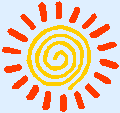What's the Big Idea, Ben Franklin?
1) Introducing the Literature
Tap Prior Knowledge
Ask students if they have ever learned about a fellow named
Benjamin Franklin. Students may remember that Franklin lived in
America around the time of its independence from England, and that he
was a great inventor. Write any ideas students generate on the board.
Apply Total Physical Response
Open your book to page 544 and hold up the picture of Benjamin
Franklin for students. Point to the picture as you read the following
sentences. Have students pantomime each sentence as they repeat it.
• My name is Ben Franklin.
• Today I am flying a kite.
• I am wearing a brown coat and a black hat.
• There is a key at the end of my kite string.
• I am a great scientist and inventor.
Develop Language: Plural Nouns
On the board, write Ben Franklin had a big idea. Then write, Ben
Franklin had lots of good ideas. Point out that you made
"idea" plural by adding an "s" onto the end. Write
some nouns from the story that have simple plural forms on the board,
like book, joke, year, bottle, town, audience. Challenge students to
make them plural. Then write some nouns with irregular plural forms on
the board, like family, child, person. Use these in sentences and then
ask students to make the nouns plural in the sentences. For example, The
child went to school. The children went to school. Write out each
noun/plural noun pair on the board.
Develop Oral Language
Write this poem on the board, and underline the concept words.
Read the poem aloud.
Holding on to kite and key,
Ben did find electricity.
His rod caught bolts of lightning
But to an inventor, this wasn't frightening.
He had a humorous style,
An arguer with a smile.
Display the Concept Words
humorous rod kite key inventor arguer
Write the concept words on the board. Ask which word answers each
question.
• Who is someone who invents something? (an inventor)
• What is the thing that flies in the sky at the end of a string?
(a kite)
• What means "funny"? (humorous)
• What is used to open doors? (a key)
• What is someone who argues a point in a discussion? (arguer)
• What is a long, thin piece of metal? (a rod)
Reread
Invite students to read the poem with you. Pause to have students read
the concept words.
[Reaching All Learners logo]
EARLY PRODUCTION Have students name some things that
inventors have invented.
REPRODUCIBLE STUDENT ACTIVITY PAGE Use page 159 to help
students better understand selection concepts and concept words.
2) Responding to the Literature
Comprehension Check
These questions can serve as models to help you meet the needs of
students with various language levels.
Leveled Questions
PREPRODUCTION Does Ben Franklin live comfortably while in
England and France? (yes)
EARLY PRODUCTION What game does Ben sometimes play all night
long? (chess)
SPEECH EMERGENCE Why did Ben leave England? (He was
frustrated with England's taxation of the colonies, and the British
government made fun of him.)
INTERMEDIATE FLUENCY Do you think Ben did more for the
United States as an inventor or statesman? Why? (Responses will vary.)
[Reaching All Learners logo]
PREPRODUCTION/EARLY PRODUCTION Read and discuss the meanings
of the sentences in Part A of page 162. Then work with students to
complete Part A.
SPEECH EMERGENCE/INTERMEDIATE FLUENCY Have students complete
page 162 independently. Ask them to work with partners to discuss the
completed page.
Vocabulary Study: Sayings
Have students turn to pages 546-547 in the story. Reread together the
sayings Ben Franklin put in his almanac or copy them onto the board.
Point out that one of the reasons the sayings were so popular and
lasted for hundreds of years is that they were so simple and short.
Encourage students to write their own brief sayings. They can write
them on index cards and decorate the cards with fancy borders or
simple art. Display the sayings around the classroom.
Real-Life Skill: Lights Out!
Remind students that Ben Franklin and other scientists of his time
were experimenting with generating and storing electricity. Ask, What
did they do with the electricity? (not much more than parlor
tricks) Then ask how we use electricity today. (lights, power for
appliances, electronics) Come up with a class list of all the
different ways students use electricity at home and at school every
day.
Leveled Questions
PREPRODUCTION/EARLY PRODUCTIO

